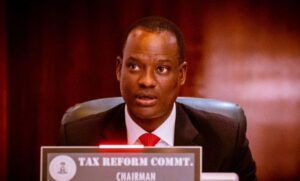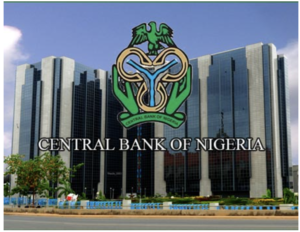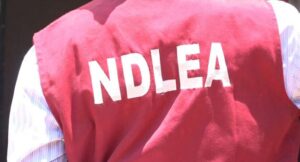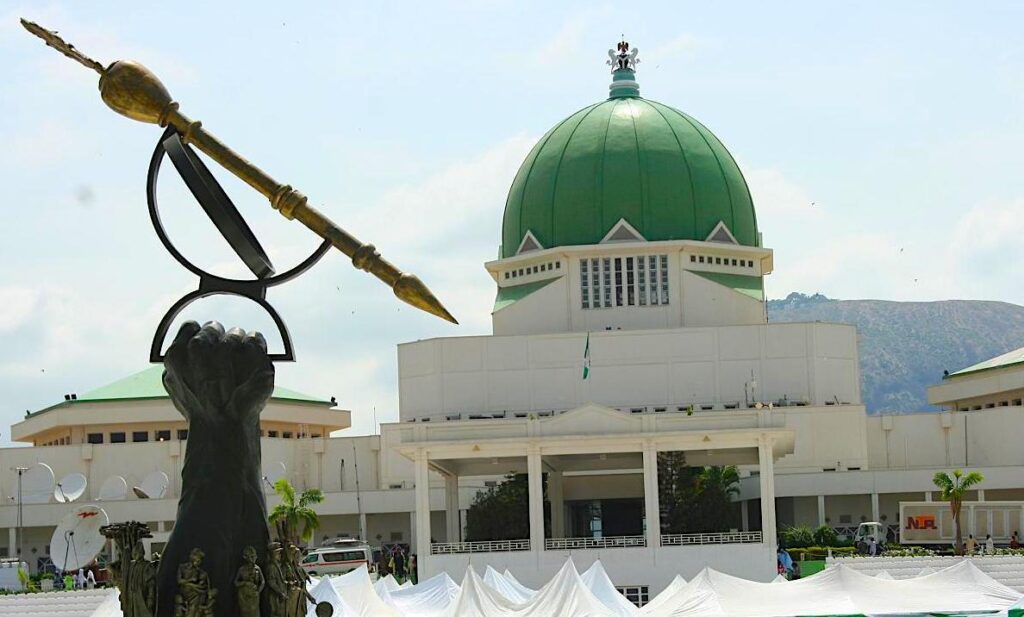- Safiu Kehinde
Across every nation where democratic governance is practiced, there is always one arm of such government under whose hands the fate of the nation lies. The collective decision of its members dictates the destiny of the country which may last for decades until the need for change arises. In the parliamentary system of government, it is known as the Parliament which is often headed by the Prime Minister. For the Federal system of government adopted by Nigeria, we refer to this as the Legislative Arm.
This arm can either be uni-cameral or bi-cameral. As we have it in Nigeria, our Legislature is divided into the House of Senate and House of Representatives collectively called the National Assembly.
Indeed, the President stand as the number citizen of the nation and is often held responsible for every policies and decisions affecting the country. However, the President is a mere piper before the National Assembly who actually dictates the tune. Members of this Assembly are the lawmakers whose decision and indecision shape the country and fate of the common man.
They are responsible for the policy making which becomes law guiding the country. Their lawmaking process all start with a bill. The bill leads to debate amongst the lawmakers who then move for its passage. If it scales through all readings and review, the President, in most cases, sign it into law and this law shape the lives of the citizens.
The year 2024, like every other years, had seen several bills raised and passed by the National Assembly- most of which sparked controversies in the country. With curtain gradually falling on the year’s calender, NPO Reports take a look at the bills and issues that shaped and shook the National Assembly in 2024.
Tax Reform Bills
Spearheading the list of Bills that shaped Nigeria in 2024 is the Tax Reform Bill which can be dubbed the most controversial of all bills in 2024.
Trouble loomed following the submission of the report by Presidential Committee on Tax and Fiscal Policy Reform set up in August 2023 by President Bola Tinubu.
The Tax Reform Bills comprised of the Nigerian Tax Bill, the Nigeria Tax Administration Bill (NTAB), the Nigeria Revenue Service (Establishment) Bill, and the Joint Revenue Board Establishment Bill.
Since its presentation before the National Assembly, the bills sparked controversies with Northern lawmakers strongly opposing its provisions- especially the Value Added Tax (VAT) derivation.

Vocal in opposition of the reform bill despite passing the second reading was Northern Senators Forum spearheaded by Sen. Ali Ndume.
Ndume faulted the timing and hastiness of the bill while speaking during an interview on Channels TV hours after creating scene at the Red Chamber.
He had agitated against the invitation of the Federal Inland Revenue Service (FIRS) Chairman to explain the content of the bill, Ndume.
When asked of his grouse over the bill, Ndume said it is poorly timed, considering the current economic hardship bedeviling the nation.
“Yes, two of them or three.
“One, which is very important is the timing. I disagree with the timing. This is not the time for such bill as Nigerians are struggling to survive.” He said.
Also slamming the bill was former Kano state governor, Rabiu Kwankwaso, who accused Tinubu of plot to enrich Lagos at the expense of the North.
The Arewa Youths Forum also slammed the hastiness of the reform bills as they called for more consultations.
In an effort to further analyse the content of the bills for the public, Channels TV organized Town Hall Debate which had in attendance, former Speaker of the House of Representatives, Yakubu Dogara, the Chairman of the Presidential Committee on Fiscal Policy and Tax Reform, Taiwo Oyedele, and other stakeholders.
While Taiwo Oyedele gave in depth analysis of the bills during the public discourse, the Committee Chairman also clarified some of the controversies surrounding them.
On his part, Yakubu Dogara attributed Northerners opposition of the tax reform bills to misinformation, stressing that their reaction is based on available lies.
The former lawmaker, who also admitted to his initial ignorance of bills’ contents, said the Northerners are misinformed by their leaders.
He, however, expressed optimism of better understanding of the bill with discussions and debates organized for the bills analysis by experts and stakeholders.
With the controversies failing to subdue, the House of Representatives would on the 2nd of December indefinitely suspend a scheduled debate on the bill
Revisit of the CBN Act
Also worth noting was the bill to review the 2007 Central Bank of Nigeria (CBN) Act . The Section of the Act which came under the lawmakers’s scrutiny was the Section 8(2) which dictates the tenure of CBN Governors and Deputies.
The Act made five years term provision for the principal officers of the apex bank with the opportunity to the reappointed for a second term.
However, the Senate, on the 27th of February, challenged the provision of the Act as the chairman of the Committee on Banking, Finance and other Financial Institutions, Sen. Tokunbo Abiru, sponsored the bill for a six-year one term tenure for CBN Governors and Deputies.
Other provisions of the bill, according to report, include the establishment of a 7-member Coordinating Committee for Monetary and Fiscal Policies to be chaired by the Minister of Finance; appointment of a minimum of one career staff of the Bank in the Committee of Governors and appointment of at least one female among the External Directors.

The bill also seek to establish the position of Chief Compliance Officer in the rank of a Deputy Governor, who reports directly to the Board and may occasionally be summoned to appear before the relevant committee of the National Assembly; Limit to Temporary Advances to the federal government; Issuance of New Legal tender to replace existing ones and in view of the fact that the Governor of the Bank also serves as the Chairman of the Board, the bill proposes that the Board Committees should be headed by Non-Executive Directors instead of the Deputy Governors.
Also proposed in the bill is appearance of the CBN Governor before; publication of a monetary policy report and an interim financial report every six months.
In situation where the Governor fails to make a report to the President and the National Assembly as required by Law, the bill proposed that he should be served with a warning letter by the National Assembly and if the failure persists, by a recommendation from the National Assembly for the Governor’s suspension from office by the President, among others.
The amendment bill quickly scaled through the first and second reading after which it was referred to the Abiru-led Committee for further legislative action.
However, the two-weeks review period given to the committee, would extend to months as some provisions of the bill became subject of controversies as experts warn of consequences of passing the bill into law.
As contained in a publication dated 25th May 2024, some economists and policy analysts expressed concern over the move by amendment bill, saying it may end up eroding the powers of the apex banking sector regulator.
They warned that the exercise would not only put the country in bad light, but would also send negative signals to investors.
In addition, they stressed that having an independent central bank remains the accepted practice across all major world economies.
National Anthem Bill
Nigerians would on Friday 24th of May 2024, woke up to the shocking news of the nation’s return to the old national anthem following what will go down in history as one of the fastest bill ever passed by the country’s lawmakers.
The bill was sponsored by the House of Representatives Majority leader, Julius Ihonvbere (APC, Edo) at the plenary sitting on the 23rd of May.
In matter of minutes, the bill titled “Act to Provide for the National Anthem of Nigeria, and for Matters Related,” scaled through the first, second, and third reading.
Following the introduction of the bill, Ihonvbere led the debate on its general principle. He said the current anthem lacks the rigour of the old.
“I have taken time to look at the old anthem and the new, and as a Nigerian who has been involved in the struggle to make Nigeria a better place either as a student to the student union movement including the “Ali must go” movement or as a university teacher; having been secretary, vice chairman and chairman of ASUU or as a pro-democracy activist who spent twelve and a half years in self-exile, I believe that the old anthem, encompasses, contains, exudes the kind of energy, resourcefulness and a sense of vision that I believe is good for Nigeria,” he said.
Despite uproar from lawmakers with voices of naysayers louder than those who said yay, the Deputy Speaker, Benjamin Kalu, passed the to the committee of whole.
It was briefly vetted by the committee before being presented for the third reading.
Against all agitations from political pundits who labelled the bill as misplaced priority, the national anthem scaled the third reading and was signed into law by President Bola Tinubu.
To this effect, “Arise O Compatriot” gave way for the return of the renewed old “Nigeria We Haill Thee!” anthem.
NDLEA Bill to Sentence Convicted Drug Smugglers to Death/ Life Imprisonment
In an effort to strengthen the National Drug Law Enforcement Agency’s (NDLEA) fight against drug trafficking, the National Assembly proposed amendment of the agency’s act that addressed punishment of drug offenders.
At the Red Chamber, Senator Ali Ndume, raised the motion of death sentence for drug offenders which earned support of other members of the Senate.
Scaling through the first and second reading, the was forwarded to Committee on Judiciary, Human Rights and Legal Matters as well as the Committee on Drugs and Narcotics.
After thorough considerations and vetting, the Committees delivered the report during the plenary session on the 9th of May 2024.
As against objections raised by Senator Adams Oshiomhole regarding the gravity of such a decision, Deputy Senate President Barau Jibrin, presiding over the session, upheld the amendment following a voice vote.

The bill scaled through the third reading, awaiting the House of Assembly’s take and the President’s approval.
In contrast to the Senate, the House of Representatives objected the death penalty as contained in the Section 11 of the amended NDLEA Act.
The green chamber proposed life imprisonment which was communicated to the Senate.
According to report, the House of Representatives constituted a conference committee to interface with the Senate with a view to harmonising the differences between the House and Senate version of the Bill, particularly section 11.
After much deliberations, both chambers, agreed on a harmonised version of the Bill to ammend the National Drug Law Enforcement Agency (NDLEA) Act which prescribes life imprisonment for drug offenders.
The proposed version of section which was eventually adopted read that: “Any person who is unlawfully concerned in the storage, custody, movement, carriage or concealment of dangerous drugs or controlled substances and who, while so concerned is armed with any offensive weapon or is disguised in any way, shall be guilty of an offence under this Bill and liable on conviction to be sentenced to life imprisonment”.
Also contained in the amended NDLEA Act is a new sub-section 4 added to section 46 which proposes that “The agency shall retain a portion of the proceeds of forfeited assets from drug-related cases for use in its operations”.
The Bill, however,.awaits President Bola Tinubu’s assent.
FRSC Arms Bill
On Thursday 10th of October 2024, a bill to create a special armed squad for the Federal Road Safety Corps (FRSC) scaled through the second reading.
The bill famously known as FRSC Arms Bill was sponsored by members of the House of Representatives, Hon. Abiodun Derin Adesida (Ondo) and Hon. Olaide Lateef Muhammed (Oyo).
It was just one out of the provisions contained in the proposed amendment of FRSC Act 2007.
The Arms bill, however, surfaced as the main subject of concern for Nigerians who kicked against the passing of the bill.
Calling for its rejection, Joint Drivers Association of Nigeria, in a report by Punch Newspaper, held that FRSC officials do not need firearms to exercise their duties.
The association warned that the FRSC officials are bound to abuse or misuse the guns, thereby endanger the lives of road users, especially drivers and passengers.
Also criticizing the bill was popular Nigerian clergyman, Apostle Femi Lazarus, who warned that its implementation could lead to catastrophic outcomes and further destabilize the nation.
The clergyman recalled Nigerians past ordeals of Police brutality and extrajudicial killings which birthed the EndSars protest.
He stressed that the country cannot afford to escalate violence.
Amid the agitations against the bill, FRSC Corp Marshall, Shehu Muhammed, clarified the air surrounding the Corps’ need for arms.
NPO reported that Sheu, at an interview on Channels TV, maintained that there is a provision in the agency’s Act for the possession of arms by its official.
He explained that the Corps’ request is to be availed an armed squad like other paramilitary outlets in the country.
As against the concern of the public, the FRSC boss maintained that the squad will only be saddled with the responsibility of protecting the agency’s infrastructure and facilities rather than using the arms for reinforcement and patrol.
“In our Act, there is a provision for FRSC to have and own arms. But then we are not asking for arms for reinforcement.
“We are asking for a squad just like other paramilitary. The idea is to protect our infrastructures and facilities, not to go and use it for reinforcement or patrol.
“It’s for us to protect our facilities and ourselves” Sheu said.
In reaction to the agitations, the National Assembly, on the 13th of December, held a public hearing on the bill to get view of stakeholders.
The stakeholders called for a speedy passage of the Bill without recourse to sentiment, adding that it was long overdue.
Retired Major General and former Corps Marshal of the FRSC, Haladu Hananiyu, harped on the need to support the move in order to protect the service personnel.
“Let us remove sentiments and emotions and ensure that we support the move by the House to protect personnel of the FRSC.” He said.
In the same vein, former Chairman, Governing Board, Federal Road Safety Commission Malam Buhari Bello, also expressed support for all the proposed amendments.
He called for a speedy passage of the Bill for them to bring the benefits to bear in no time.
A retired deputy corps marshal, FRSC, Kayode Olagunju, recalled how hoodlums invaded his home while he tried to stop number plate fraud in Lagos.
“I was just lucky to survive. That was possible because of inadequate protection given to an officer,” he said.
He said the argument of proliferation or accidental discharge would not be an issue when the personnel were properly trained.
Similarly, Charles Akpabio, another retired deputy corps marshal, recalled how, as a zonal commander, his patrol team from Adamawa that went to rescue accident victims in Numan was attacked.
He said they were on their way back and were attacked by the Okada mob, which blamed the officers for causing the road crash, saying, “I had to rely on sister security agencies.”
“Only the presence of the Army and DSS team prevented them from burning me and my personnel.
“There is a need for a special armed squad to protect our facilities and personnel; however, there must be rules of engagement,” he said.
Speaking for the National Association of Road Transport Owners (NARTO), Dr Kassim Ibrahim expressed total support of all the proposed amendments.
“A robust and effective FRSC is a necessity. It is very important to protect the lives of officers and facilities,” he said.
With controversies still lingering despite the public hearing, the FRSC Bills remain in limbo as the year 2025 approaches.
NDDC Bill
Another bill that stirred legislative tantrum in 2024 Niger Delta Development Commission (NDDC) Amendment Bill. Controversies emerged amongst lawmakers following calls for the change in status quo of the Commission which was long established in 2007 under the administration of former President Olusegun Obasanjo.
Earlier in February, the House of Representatives was at loggerhead with the Senate over the inclusion of Anambra state in the newly formed NDDC Board.
The Senate had rejected Anambra’s inclusion after it was brought on the floor by Senator Tony Nwoye who in his lead debate argued that Anambra State as an oil-producing state deserved to have membership in the NDDC.
Members of the Red Chamber rejected the bill as they argued that Lagos and Kogi states who are also oil producing states are not covered by the NDDC.
The House of Representatives, however, disagreed with the Senate as they voted for the inclusion of Anambra state in NDDC.
Leading the debate on the bill before the House, Rep. Ibezimako Ozodinobi said, oil had been found and was being exploited in Anambra State, adding that Anambra had been receiving 13% derivation as an oil producing state while its name was not mentioned in the NDDC Act.
He argued that since the state faced the same ecological problems especially land degradation like the Niger Delta oil producing states, its interest should no longer be tangential in the Act.
The bill would pass the second reading following voice votes by the lawmakers.
Fast forward to October, the NDDC would again come to fore following the proposal for the establishment of the South-South Development Commission (SSDC).
The bills sponsored by Sen. Asuquo Ekpeyong (APC, Cross River) was initially opposed in July by Northern Senators who argued proposed commission was a duplication of the existing Niger Delta Development Commission, advising the Senate to drop it.
The Senate would, however, fast-track the passing of the bill in October as it scaled second reading.
However, the proposed establishment of SSDC alongside already established North West Development Commission (NWDC), South West Development Commission (SWDC), North East Development Commission (NEDC), placed the NDDC under threat which would become eminent following its scrap as an independent body by President Bola Tinubu on the 23rd of October.
Tinubu merged the NDDC alongside other established Commissions under the new Ministry of Regional Development.
This led to agitations and strong condemnation from eminent Niger Delta leaders and the Ijaw Youth Council.
For Elder statesman and Convener of the Pan Niger Delta Forum, Chief Edwin Clark, decision of the Federal Executive Council to scrap the Ministry of Niger Delta Affairs was unjustified and detrimental to the region’s development.
Former Niger Delta freedom fighter, Asari Dokubo, also expressed his disappointment with the development.
The ex-militia, in a viral video on X, accused Tinubu of betraying Niger Deltans trust while labelling Yorubas as traitors.


